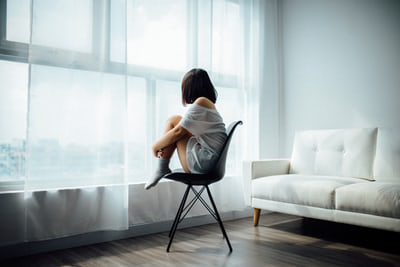
How to deal with anxiety and depression while being cooped up
Share
By Helena Bester
Looking after your mental health

Photo by Anthony Tran on Unsplash
Introduction
This is the third blog in our series about the Coronavirus pandemic. For most of us, the phrase “to be stuck at home” got a whole new meaning.
You might be experiencing a vast array of emotions – from feeling happy the one moment to feeling immensely down the next. Yes, all of us are faced with the unknown, and feelings of anxiousness, loneliness, and depression can be paramount.
How are you feeling?
The circumstances can have different effects on different people.
If you are feeling extremely low, sad, and as if the situation is hopeless, you might be suffering from depression. It may even be that you’ve never been diagnosed before.
You might also be suffering from anxiety. It is usually an extreme sense of worry, tension, and restlessness.
Anxiousness and depression affect our physical and mental health tremendously. It affects the way we eat, sleep (if at all) and think about life in general as well as how we view ourselves.
You are only human
The critical thing to remember here is that it is okay to feel this way. The world now is unknown territory for us all
Acknowledge how you feel and control what you can.
Why am I feeling this way?
The coronavirus and its health implications are scary.
Apart from the health factor, you might be faced with challenges such as:
- Job loss and loss of income,
- Social distancing -not seeing your friends and family members for an indefinite time
- Constantly being reminded of how bad the situation is around the world via social media.
This, in itself, is enough to cause feelings of anxiousness and depression.
How to beat the blues
Be kind to your body
- Give yourself a break. If you are a perfectionist – try to stop and think. Stop expecting too much from yourself and try to reduce your workload. Only do what you can.
- Change your diet. Start eating healthy and avoid junk food as the latter have been known to make you feel lethargic. Take your vitamins – they are good for you.
- Exercise and release those endorphins. Not only is exercise physically beneficial, but it is also good for your emotional well-being. Just a few minutes of exercise a day can make you feel motivated and energetic. Go outside, take a walk in the garden, and get some sunshine on your body.
- Enjoy a massage or aromatherapy which might relieve the symptoms and will soothe the soul. You might also try yoga or meditation.
- Avoid alcohol and smoking, which might add to the feelings of depression and anxiety.
Open your mind
- Make a mind shift. Be positive and change your outlook from “I am stuck in this house” to “now I have time to…” Tackle all of those tasks that you procrastinated.
- Maintain a daily routine. Routine provides us with a sense of security. Shower, get up, and dress up. Go about your day as you would normally so far as possible. If you have kids, this is especially important – perhaps you are homeschooling during this time.
- Start a new ritual. Write down your thoughts in a journal, and soon you will start to realize that there is a lot of positives from being all cooped up.
Do these things:
- It may also help to keep your house tidy and avoid too much clutter, as this may cause an increased feeling of anxiousness as well as feelings of claustrophobia.
- Limit your time on social media. Too much ‘news’ can be overwhelming.
- Stay connected with friends and family via social media and available apps.
- If you are on prescription medication for an illness or anxiety or depression – it is essential to take your medicine.
Speak to someone
If you are experiencing extreme anxiety or depression, speak to someone, be it a family member or friend.
It is also recommended that you contact a medical professional like a doctor or physiologist via platforms available on the internet if the situation becomes severe and or detrimental to your health.
Conclusion
Getting accustomed to your new normal might be a bit daunting. Remember – you are not alone. There’s help available all around you.
You may also contact us (find our contact details elsewhere on the site), and we will help where we can.
Resources
http://www.sadag.org/images/brochures/Depression%20Brochure.pdf
https://www.cipla.co.za/cipla-news/looking-after-your-mental-health-during-the-covid-19-lockdown/
https://www.womanandhomemagazine.co.za/health/how-to-cope-with-depression-during-lockdow